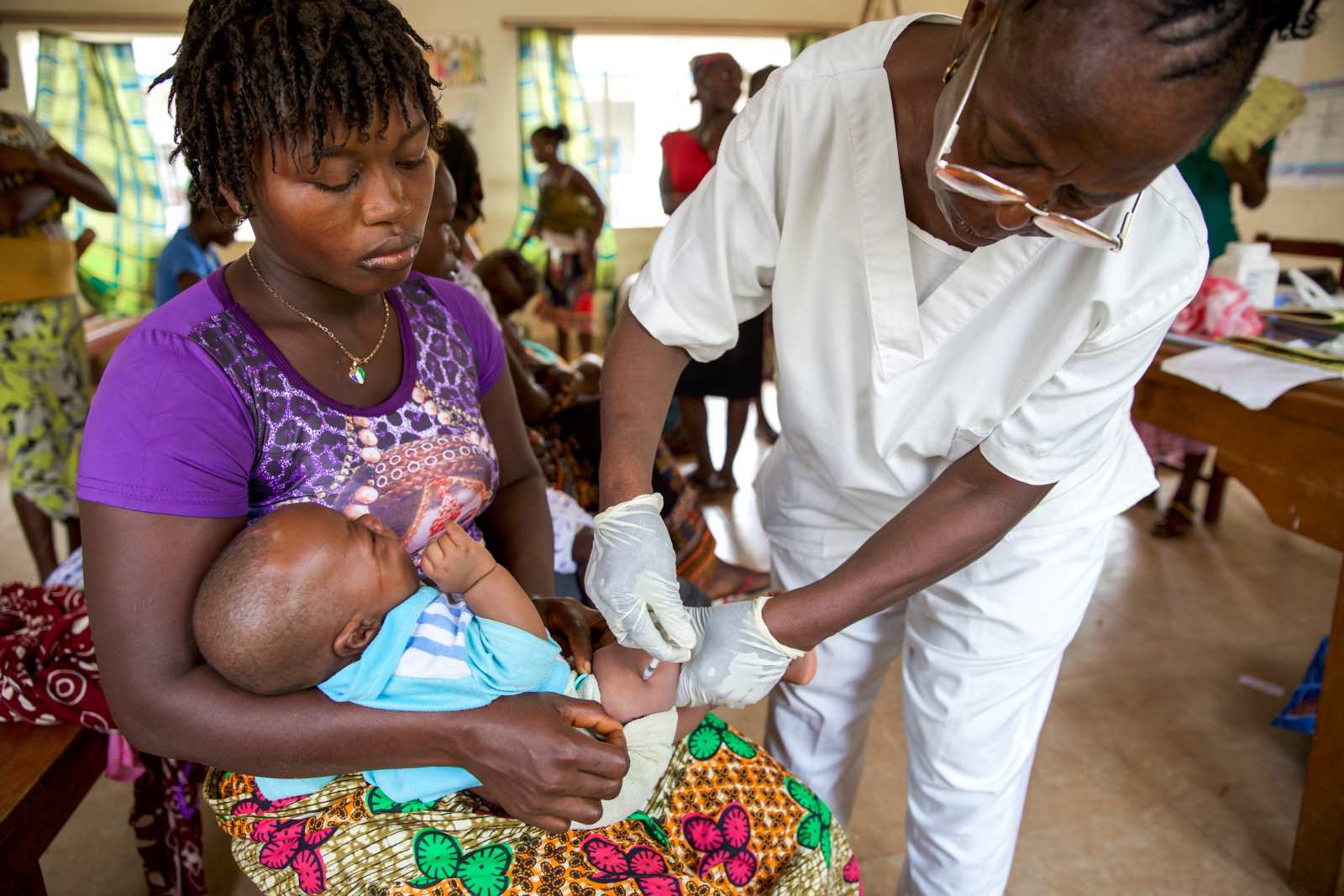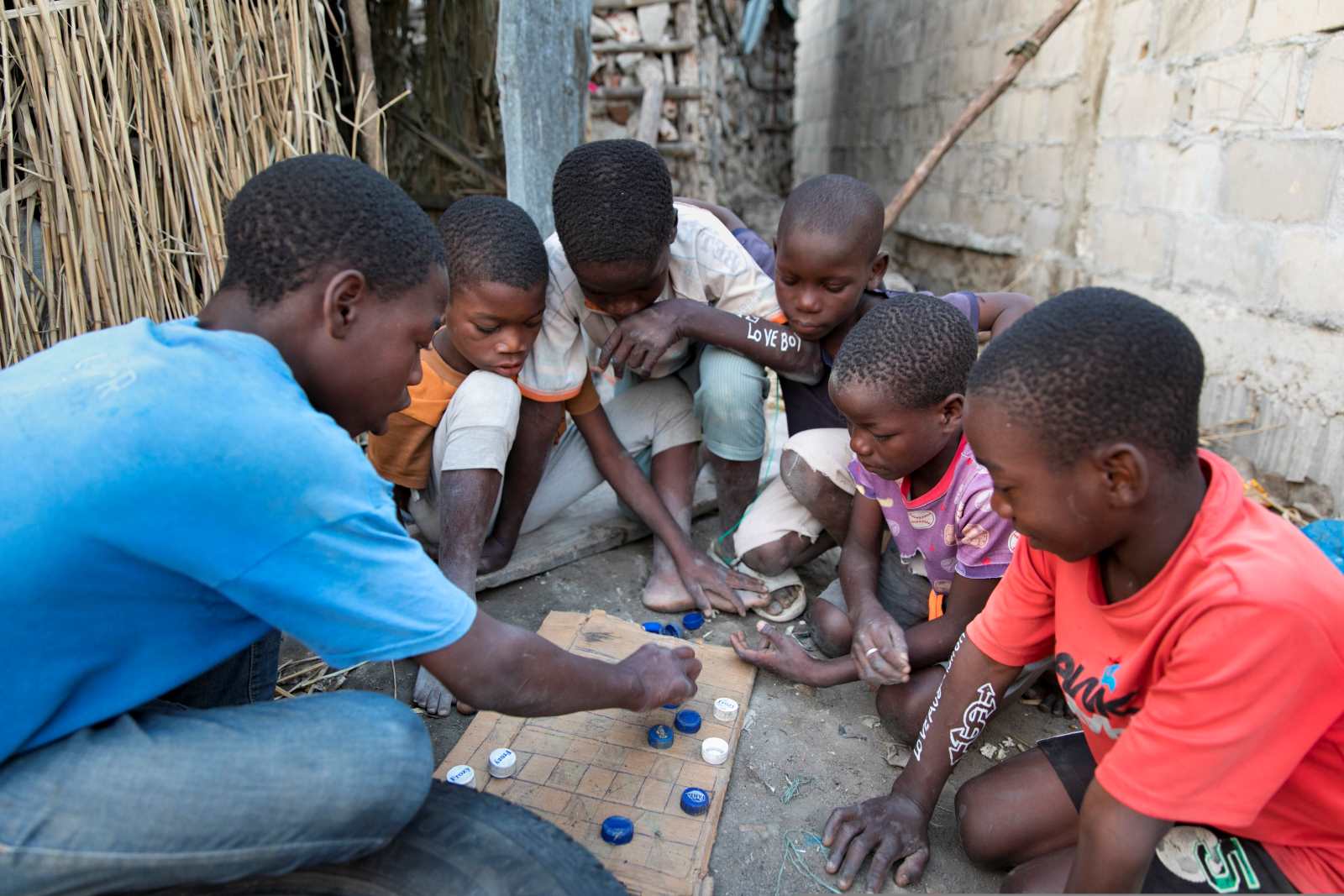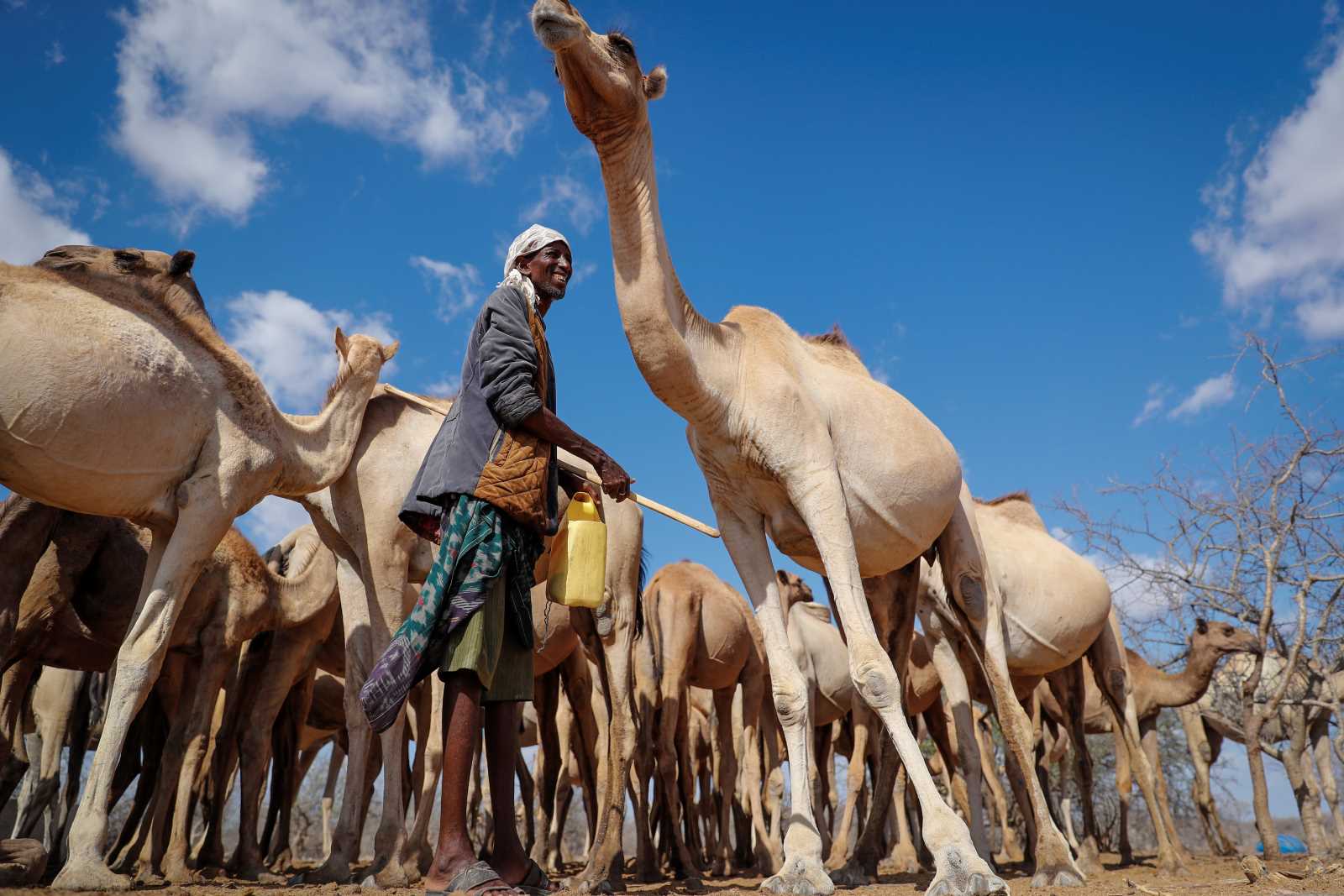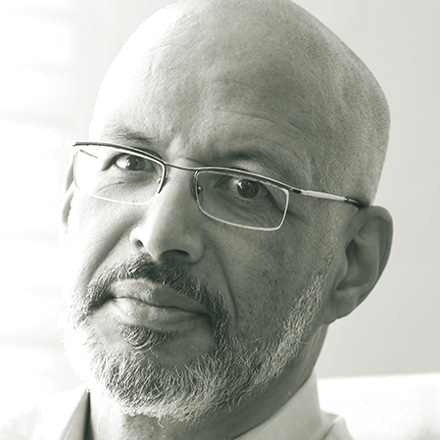Child aid
“You have to hold them close”
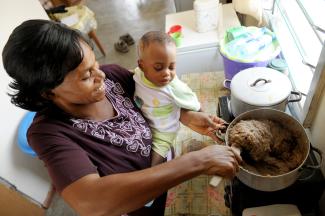
What do children need in their early years for a healthy and happy life?
First and foremost, young children need a stable caregiver who feels connected to them. This person is the central figure in the first years of life. Infants and toddlers depend on other people to survive and fulfil their basic needs, like food, shelter and safety.
As an SOS Children’s Village Mother, you are such a caregiver. What is important for the children in your care during their early childhood?
I currently have nine children under my care. Making them feel safe is my top priority. I must make it possible for them to bond with me, even if I am not their biological mother. With babies, this requires physical contact. You have to hold them close, hug them, carry them. For infants, this is vital, especially if they come from places lacking this kind of care. Besides that, I am responsible for the children’s health. This includes regular medical check-ups and adherence to the immunisation schedule, which is particularly important for very young children. When it comes to nutrition, a balanced diet is crucial. This means that protein, carbs and vitamins must be included in the menu.
What challenges do children in low-income countries like Kenya face and how does this affect their early years?
The biggest problem, of course, is poverty and everything that comes with it. Substandard housing in overcrowded places without proper infrastructure – especially without sanitation – is not a good situation for children to grow up, let alone young children. This leads to diseases, malnutrition and makes any healthy development impossible. On the contrary, it ultimately leads to the death of the child.
Poverty also results in a lack of adequate care. In the worst cases, children in Kenyan slums do not even have a caregiver. All too often, the pressures of poverty lead to caregivers neglecting their children or arguing in front of the child. There are also many cases of abuse, even sexual abuse, at a young age. These children will suffer from trauma and stress, perhaps for the rest of their lives.
What are cultural factors that influence childcare and early childhood development?
In Kenya, there are more than 40 ethnic groups. Their cultures and beliefs differ to some extent, and this applies to their childcare practices as well. Some of them are very harmful to the child, such as female genital mutilation (FGM), which is unfortunately still practised in some communities.
Other practices harm children’s development more implicitly. Some communities believe that children should be seen but not heard. They do not show them much affection, teach them to keep their problems to themselves and to be quiet, especially in front of their elders. This affects the children’s self-esteem from an early age, as they have no one to turn to with their worries.
Other cultures still believe that girls should not go to school and that their only purpose is to be married off one day. They only allow boys to be formally educated.
In some parts of Kenya, there is, moreover, little knowledge about proper healthcare for children. When a child is sick, they are not taken to the hospital but given herbal medicine, for example, which is sometimes not effective.
SOS Children’s Villages focus on family-based care. How does this approach contribute to a nurturing and stable environment for children in their early years?
Family-based care means that the children have a long-term caregiver. There are around ten to 15 houses in each Children’s Village. Ten children and their caregiver live in each house – in Kenya this is always a female caregiver. This means that the children grow up in a family environment, with siblings and a mother, under one roof. And that is what children need from an early age: a stable environment with familiar faces – a family.
As an SOS mother, I understand my children because I have been with them for most of their lives. I know them individually, with all their strengths and weaknesses. And the children are attached to me, even those who are already grown up.
Which educational opportunities does SOS offer children right from the start and how does this prepare them for a better future?
SOS provides placements in good kindergartens and all the necessary materials. Here in Nairobi, we have a public kindergarten on our premises where all the young children from the Children’s Village go. In this kindergarten, they are placed in play groups where they can explore things in a playful way, be it by painting, drawing or playing with materials. There are as well first lessons in which the children are read to, for example. Besides, we have plenty of toys in the house and a playground in the Village, so that the children have lots of opportunities to play outside the kindergarten. This is very important at this stage of life for the development of the brain and for familiarising them with different materials, tools, numbers, letters and their own abilities.
Furthermore, as soon as we as caregivers realise that a child is challenged at this point in their development, we take them to the right specialist and walk the path with the child until we see where they can fit in.
What role does community support and engagement play in addressing the needs of children in low-income countries?
The community is indispensable for us. It is usually social workers from the community who identify children in need and send them to us. It is also the community that witnesses abuse and reports it. Occasionally, we receive donations of clothes or food from the community too, which we distribute in the Children’s Village. The community is our social safety net.
How does your Village engage with the local community?
Families from the community have recently started living in the Children’s Village. We have rented out some family houses to them, and in return the SOS families who lived there have moved out of the Children’s Village and into the community. This was a big step that offers the children many opportunities for interaction.
Moreover, the children from the Children’s Village regularly interact with children who are supported as part of SOS’s other main programme, the Family Strengthening Programme (FSP). Here, the children are supported within their families of origin in the community. And then, of course, they also mingle with the community at school or church.
This is very important, as it is the only way for them to learn what life is like outside of SOS. In the Children’s Village, they only know our SOS setting – one mother, ten children. Through contact with the local community, they learn about the struggles of other families, their way of life and more about Kenyan culture in general.
Thinking long-term, how does the care provided in early years impact children as they grow up?
When the children move out of SOS, they have been given the foundations for a stable and healthy life: they had a roof over their heads, food, clothing, medical care and education right from the start. This means they should have what it takes to continue their journey, find a job, start a family and become a contributing member of their society.
Do you believe the SOS model can serve as an example for childcare worldwide?
Absolutely. There are so many children around the world who have been abandoned, orphaned or whose family cannot look after them. They need a place they can go to, a safe home they can retreat to. And in this home, they know that there is someone who will accept them and look after them from the very beginning. These are the SOS caregivers. It’s a very special role. But I believe that there are people all over the world who have the gift of being able to care for children who are not their own. With SOS, they can use this gift to improve the lives of children.
Jane Nafula is an SOS caregiver in the SOS Children’s Village Nairobi.
https://www.sos-childrensvillages.org/


